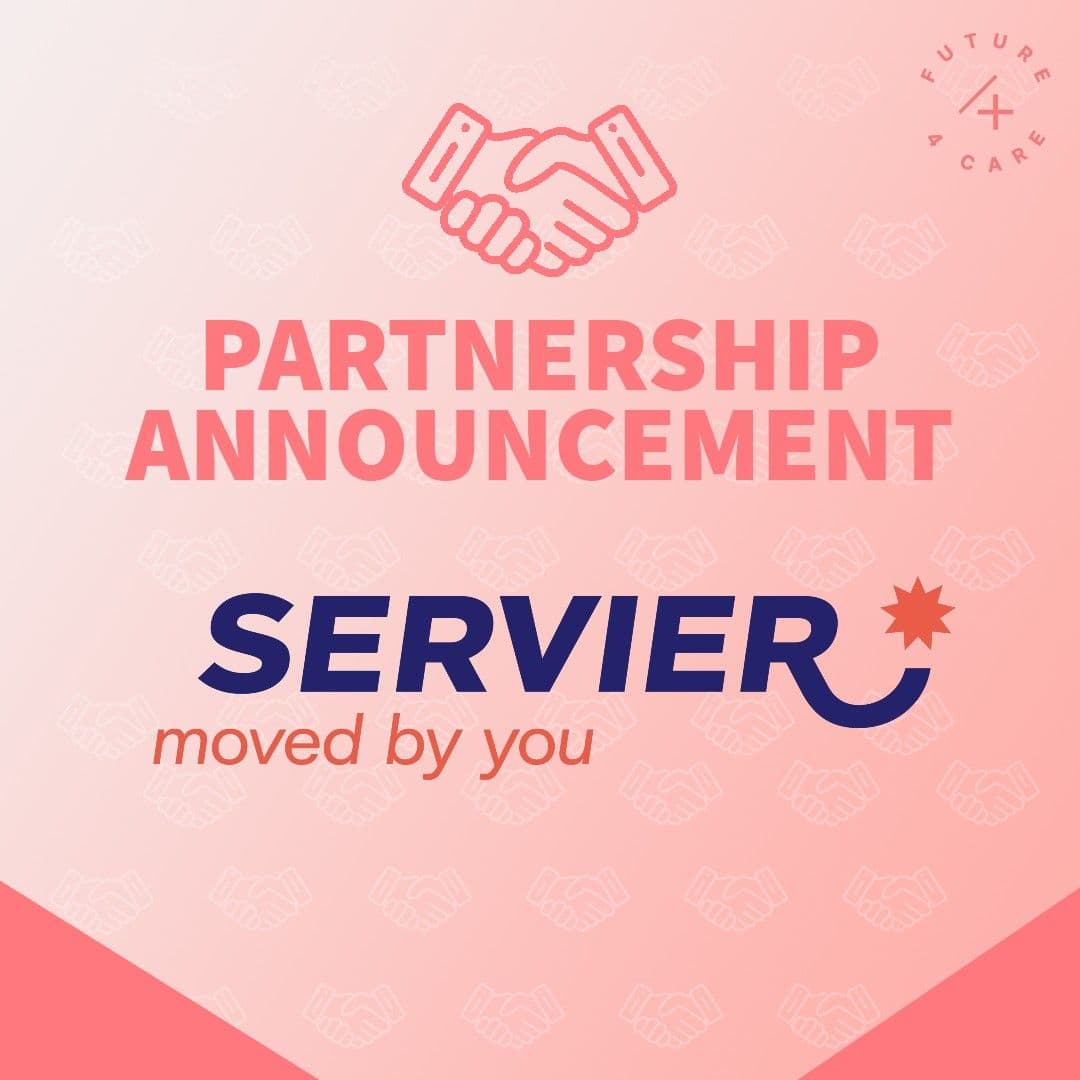Data, the keystone of e-health!
Laurent Frigara, co-founder of Enovacom, shares his vision and advice for taking full advantage of digital data in the world of healthcare.
Published on November 25th, 2021 at 09:17 am
Data, the keystone of e-health!
It's an indisputable fact. Harnessing the wealth of healthcare data will revolutionize the way we care for patients. It's the basis of the "5Ps" of digital medicine: more personalized, preventive, predictive, participative and evidence-based.
Rather than argue about the potential, which you've all already clearly identified, the idea here is to understand how to move from intuition to action. To do this, we spoke to a specialist in the subject.
Laurent Frigara, co-founder of Enovacom, the French leader in medical interoperability and an early supporter of Future4care's development.
In charge of Orange Business Services' healthcare division, Enovacom currently employs over 250 healthcare experts.
Here, he talks to us about sharing culture, interoperability and methodology.
A little background
Today's healthcare professionals expect the right data at the right time, for the right patient. This is the foundation on which the entire medical decision chain is built. Whether it's about test results, vital signs from biomedical devices and sensors, prescription histories or health episodes, sharing this information is essential. This sharing ensures better patient care and improved care coordination, while avoiding the redundancy of examinations already carried out.
The challenge is also to exploit health data in a consolidated way and in very large quantities. For example, using data from large cohorts of patients with common characteristics opens up interesting prospects and promising advances for healthcare and medical research. We can detect the emergence of certain diseases at an early stage, speed up diagnosis and evaluate the effects of medical treatment with greater precision.
Data is also the raw material for AI learning. The quality and performance of an AI is directly linked to the quantity and quality of the data used.
On a facility scale, the effective use of data from its IS enables it to optimize its operations, and thus improve care by adapting processes based on concrete elements.
Proportionally, data consolidation is more important at regional level. It enables us to adapt health policy or, as we saw during the health crisis, fight effectively against a pandemic.
At the same time, there's no denying that health data is also coveted for less virtuous purposes. They are so precise and personal that, for example, they can easily be used for identity theft. It can be traded at a premium on the dark web, or used to ransom healthcare facilities.
With this in mind, we'd like to share with you five essential lessons for the successful digital transformation of your company, institution or other healthcare structure, with an effective, reliable data strategy at its heart, at the service of healthcare.
N°1 Dealing with market constraints
More than anywhere else, the healthcare sector faces multiple constraints, whether from an organizational, regulatory or economic point of view. Today's healthcare establishments, which produce and manage vast quantities of data, have inadequate information systems, and their transformation is slow in coming. Most of them are made up of several application layers from different generations, ten, fifteen or even twenty years ago. Under these conditions, data sharing is much more difficult.
Historically, French doctors have rarely been inclined to share patient information. This culture of sensitive, anonymous and exclusive data locks usable data into information silos that are not conducive to exchange and sharing.
What's more, it's the patient who owns his or her data. When they give their consent for their personal information to be used, they do so within a certain framework, which can sometimes hinder the use or consolidation of existing databases.
To remedy this, healthcare players need to work on information systems, to make them interoperable and standardized, based on common frames of reference. To optimize the use of healthcare data, we need to ensure that it is properly collected, structured and of sufficient quality. It is also necessary to adapt processes that integrate patients consent, so as to obtain a clear vision of where the data comes from and how it will be used.
N°2 Learning to structure and communicate
We need to create optimal conditions for these exchanges, both in terms of security, trust, and the ability to share reference systems to better understand each other. It is therefore necessary to put in place a technical foundation that is standardized, common, understood, integrated and shared by all players. Enovacom has been working in this field for 20 years, and it is also one of the missions of the French National Health Agency, which, through financial aid from the Ségur de la Santé, is accelerating this harmonization. This deliberate drive by the French government is an opportunity to ensure that the information systems of all healthcare organizations are based on the same standards.
The digital solutions of the various players need to communicate with each other, if not natively, through dedicated complementary services. This will also enable them to exploit the structured data contained in healthcare documents, to offer users even greater relevance.
However, incumbent publishers in the ecosystem do not make their often proprietary databases easily accessible. Interoperability services, whether on site or in the cloud, can break down these silos by positioning themselves in an agnostic way.
When it comes to upgrading their information systems, healthcare establishments need to ensure that future healthcare devices, applications and software are interoperable by their very nature, and that the data they generate can be exploited. In other words, the healthcare data generated by these new elements of the healthcare ecosystem must be stored in structured data warehouses, based on common repositories. Everyone needs to speak the same language if they are to make the most of the data they collect.
N°3 Be methodical
Unfortunately, knowing how to juggle with market constraints and initiating an open approach are not enough. A great deal of care needs to be taken at every stage of the data journey to prevent it from losing its value. If just one stage is not carried out correctly, the data is no longer qualified and therefore unusable. Meticulous care is therefore required, from inputting data into care production software, or sampling vital data from biomedical equipment, right through to storage in a suitable database.
This means providing caregivers with ergonomic software natively designed to store data that can be used. Tool training is also essential to ensure the quality of the information entered.
In addition to standardizing data syntax for sharing and consolidation, it is also important to work on semantics. In the first instance, this concerns the definition of the message: its nature, type and format, so that it can be understood by all.
Semantics concern the medical content of this data, and require the sharing of semantic interoperability repositories.
The Systematized Nomenclature of Medicine - Clinical Terms (SNOMED CT) is a key terminology for meeting these challenges. It is an international descriptive terminology covering the widest range of clinical specialties and operational needs. It standardizes the capture, classification and sharing of any clinical information by healthcare professionals.
Data quality control tools also exist, to ensure that the data exchanged complies with these different standards and repositories. One example is Enovacom's work on the SI-DEP project, where its solutions analyze and control the structure and semantics of data transmitted by analysis laboratories.
N°4 Generalize interoperability
We can't talk about digital health without addressing the issue of interoperability. Interoperability refers to the ability of different digital systems, applications and services to communicate and interact with each other. In particular, it enables patient information to be shared throughout the patient’s journey. Interoperability also facilitates the integration of innovative solutions or services into an existing establishment or ecosystem. Ultimately, this helps secure the care process, simplify procedures for patients, improve the relevance of medical decisions and ensure more effective prevention, etc.
The many digital solutions used by healthcare professionals need to be interoperable, not only with each other, but also with government services such as the Personal Medical File, the Digital Health Space, regional platforms, and data warehouses such as Health Data Hub.
Interoperability is also a key factor in the exploitation of healthcare data. It enables data to be extracted or consolidated from existing systems to feed data warehouses, and repositories to be shared to ensure that everyone speaks the same language.
N°5 Data at the heart of Future4care's business model
It's important for players in the ecosystem to be supported by specialists in collecting, storing and using healthcare data.
Future4care's ambition is to support start-ups in bringing their innovative solutions to the market faster.
In addition to providing exclusive, qualified data, Future4care supports European start-ups throughout the lifecycle of their solutions. We enable them to focus on their core added value or differentiator, as they often have little time to break through and competition is fierce. Thanks to Future4care, they can call on the best experts for all matters relating to infrastructures, security, regulations or data exploitation tools. Its members, starting with three of its historical members Orange, Sanofi and Generali, will offer their own skills, but other experts will also be called upon to contribute to the project.
Future4care can also support start-ups in the development of their solutions, so that they are based on standards and infrastructures that will make them sustainable. We will also facilitate the integration of their applications or services into the existing ecosystem, thanks to the interoperability expertise of our members.
Finally, we support start-ups in using the data made available to them by Orange, Sanofi, Generali, Capgemini and our future members. This is not only to guarantee optimal exploitation, but also to ensure that they do so in compliance with patient rights and ethics.
Are you a start-up and would like to benefit from this support? Are you a major corporation and share our vision? Or are you a healthcare center, patient association or academic and would like to innovate alongside us? Write to us in reply to this email and let's have a chat.
You may also like
Future4care announces a strategic partnership with Servier to accelerate innovation in Research & Development for the benefit of patients

Future4care hosts the official announcement of the 80 winners of the French Tech 2030 program

Three Fundraising Announcements from Future4care Ecosystem Startups in September
